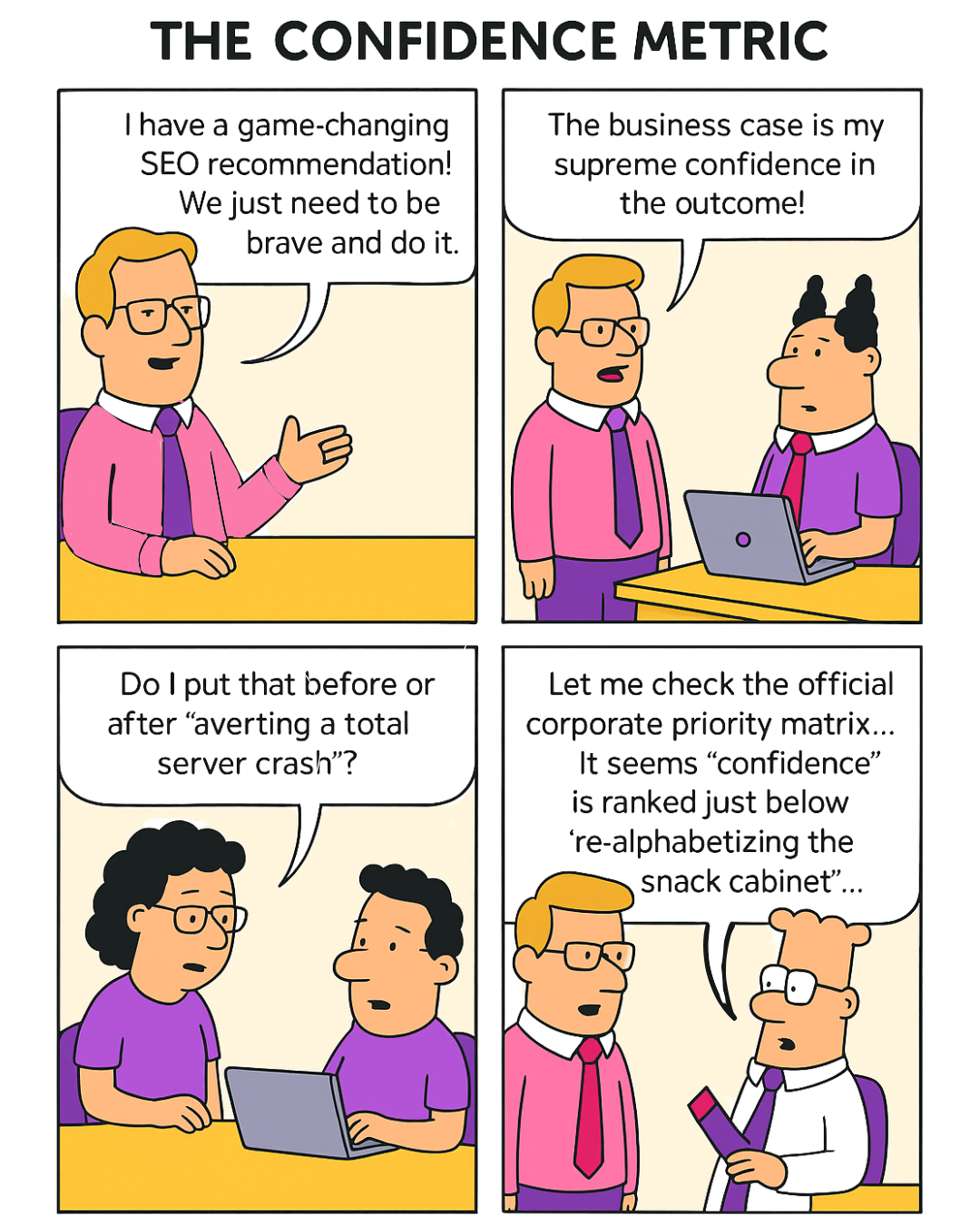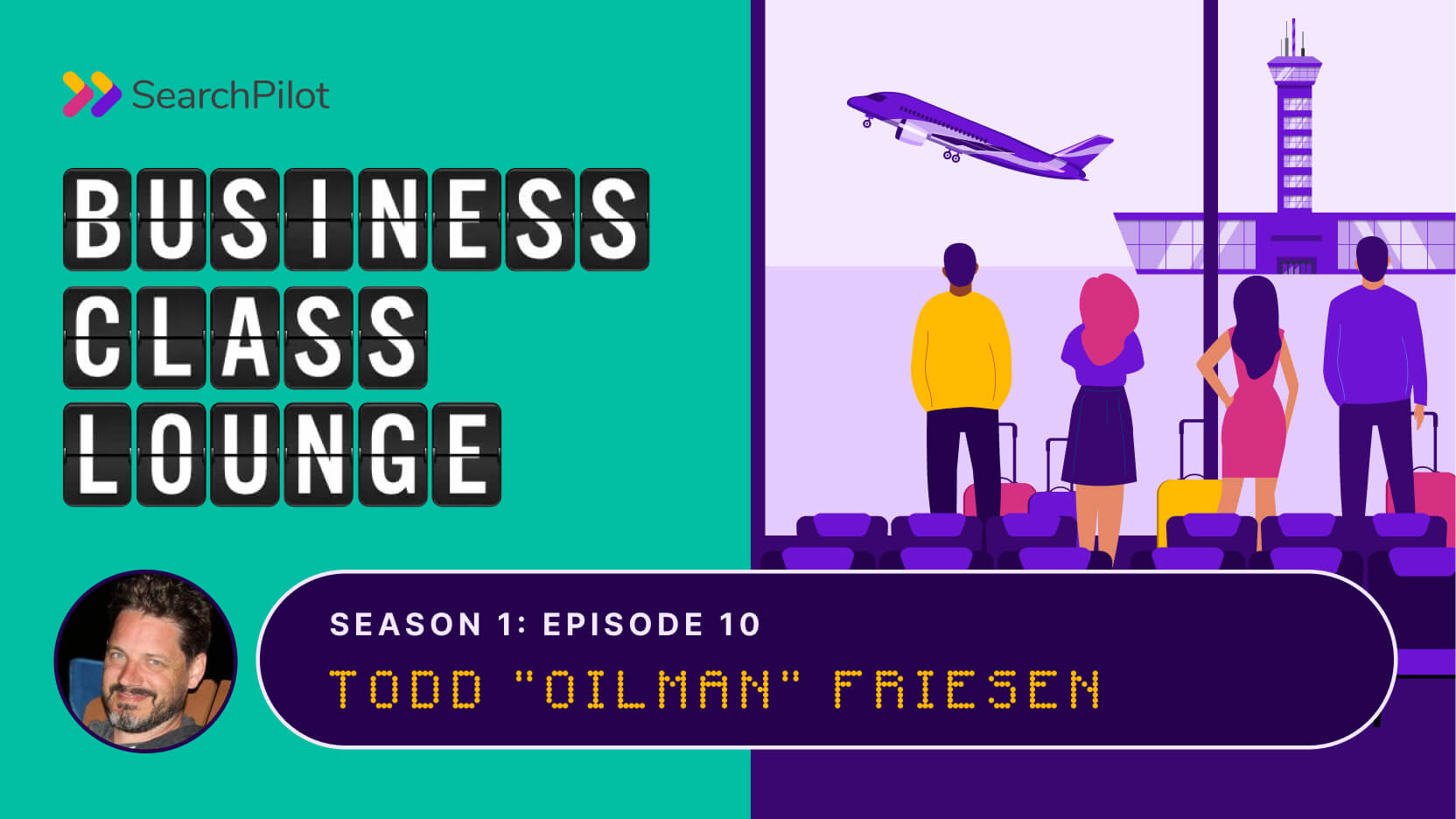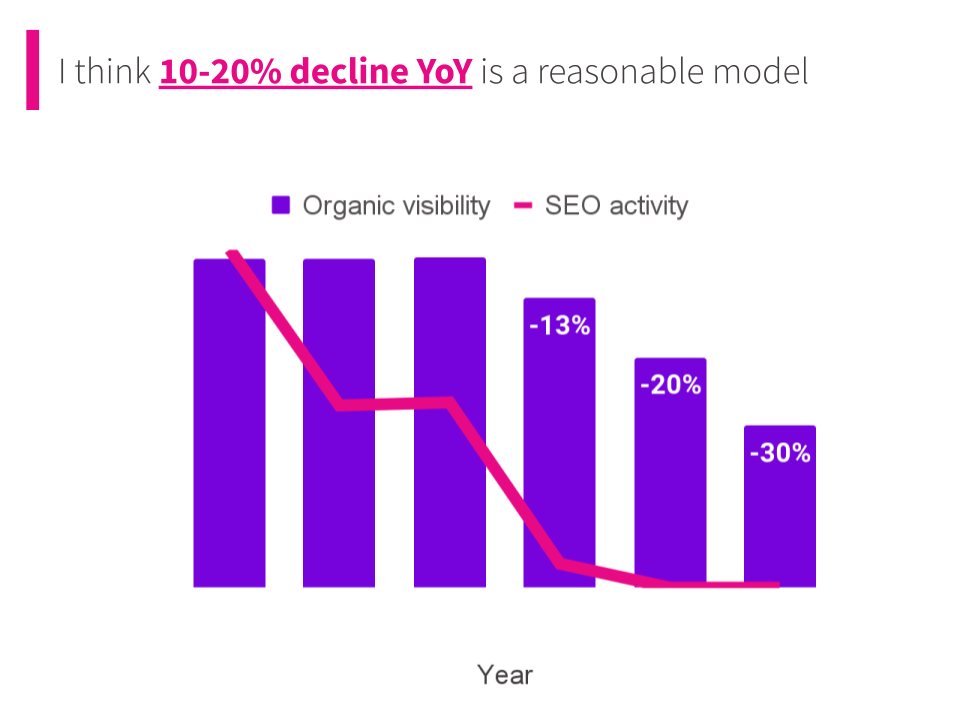In this episode of the Business Class Lounge podcast, I speak with Abishek Surana Rajendra, VP of organic growth at Course Hero.
Abhishek’s background fascinates me. He’s one of those rare SEO leaders who started out in software engineering, and he has a unique perspective not only about motivating cross-functional teams but also about the work he’s done on Course Hero’s own SEO A/B testing approach.
Here are are the takeaways from our conversation.
A big part of SEO leadership is prioritizing your engineering teams
As an ex-engineer, I had a hunch that Abishek’s approach to SEO leadership would look a little different than most other guests. As it turns out, my hunch was right. “I believe in giving [engineers] a lot of ownership, making sure they’re able to add to the roadmap,” he shares. “They understand the impact of their work on the business, on the key metrics we own. They also have a solid understanding of the hypothesis for the different experiments that we’re running.”
As pioneers in large-scale SEO A/B testing, we know the importance of engineering teams. Creativity needs to be balanced with analytic rigour. As Abishek explains, “Being analytical is so important in this field given how much content and how much data you might get. Having access to both within the company is important so you can understand the data and drive insights from it.”
SEO financing: Scoring content based on perceived quality, demand and overall performance
“A lot of different teams focus on acquiring content, creating content, building content. But the most important job of an SEO is to make sure that that content is promoted appropriately and has the best potential.”
- Abishek Surana Rajendra, VP of organic growth at Course Hero
A standout point in our conversation was Abishek’s approach to financing SEO. At its core, Abishek explains, there are “different SEO treatments for the different quality of content based on business impact.” This drives a portfolio strategy of SEO investments based on perceived quality, demand and overall performance.
One example Abishek shares is the idea of “SEO bankruptcy,” which is understanding and removing content that hasn’t performed well or even been crawled but is simply consuming real estate. The other end of this spectrum is continuous optimization: “content enrichment, content summarization, more optimization from a page performance perspective, links from the homepage or the top-of-the-line category pages.”
Using this financing strategy allows Abishek’s team to move content between different tiers based on performance, semantic features, demand, and competitor content. Over time, “you will get to a state where you have your best content, which is getting the best treatment.”
Building cross-functional teams and staying accountable to leadership
After some geeking out about the technical experimentation projects Abishek is running, I ask him about how he structures his teams and how he remains accountable for results.
“Right now, we have SEO engineers reporting to our engineering leader. We have SEO data scientists and analysts reporting to our SEO analytics manager. And we have SEO strategists and product leaders reporting to me,” he explains. Across these functions, Abishek tells me the most important thing is giving everyone “the right kind of autonomy to run experiments and take risks” while remaining hands-on with the more critical projects.
When it came to accountability, the north star metric his leadership looks to is, unsurprisingly, traffic that drives business outcomes. “Something that we have changed over the last couple of years is focusing on targeted traffic,” Abishek says. “At the end of the day, it's all about the traffic from our most valuable cohorts of content and traffic from our most valuable cohorts of countries.”
Leadership styles, AI and the importance of networking
I’m always fascinated by how guests keep a pulse on the current state of SEO. For Abishek, it’s all about getting out into the real world. “I'm huge on making sure that I have a strong circle of SEO leaders that I connect with on a regular basis,” he explains. “This is something that I encourage other folks to consider doing because there's only so much you can learn from an article or a case study.”
This “learn from others” approach informs a big part of Abeshek’s leadership style. He encourages anyone who’s looking for guidance to “reach out to industry experts and see if they can gain a perspective on what works and what doesn't for your specific business case.”
Finally, we spoke about the “big ugly thing” – Generative AI. “Chat GPT and Generative AI is a huge opportunity,” he shares. “Things that were simply unimaginable in terms of SEO seem so attainable today. For example, there's so much we can do with the titles we generate and content summaries we can create.”
I love this viewpoint. During our chat, Abishek probed me for my own opinion. I reminded him about Google’s biggest differentiation, which is the power of citations and being able to see where original information came from and that it's fresh and relevant and authoritative to the user. Most importantly, though, I reminded him that all of these things require websites and that websites aren't going away anytime soon.
Want more?
You can continue listening to this discussion and other great conversations from wherever you get your podcasts: Apple, Spotify, Amazon, Google, or YouTube or you can catch them all directly from the feed here.
I’d love to hear your thoughts on this eleventh episode. Email me at podcast@searchpilot.com or send me a message on LinkedIn.



